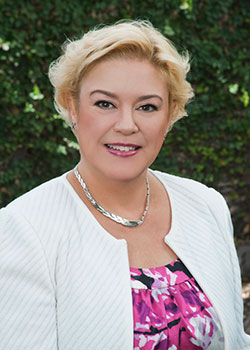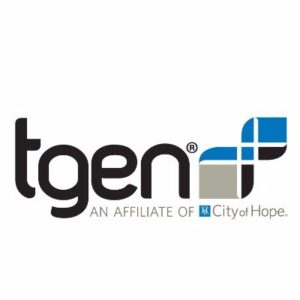Clinical Microbiome Services Center enhances TGen’s genomic analyses
FLAGSTAFF, Ariz. — April 2, 2018 — The Translational Genomics Research Institute (TGen), an affiliate of City of Hope, today adds to its existing strengths in precision medicine with the establishment of a dedicated Clinical Microbiome Services Center at its infectious disease facility in Flagstaff.
By focusing on the human microbiome, this effort will enhance TGen’s position as a leading center for genomic analysis by including the ability to examine the impact of the microbiome on human health. This can range from gastrointestinal disorders, such as irritable bowel disease, to skin problems, such as psoriasis.
In addition, the Services Center will help investigate specific problems related to other serious and common human diseases, such as diabetes and cancer, and will also address the health needs of animals and the environment.
Dr. Sarah Highlander, a highly experienced expert in medical microbiology and the human microbiome, leads this new endeavor.
Dr. David Engelthaler, Director of TGen’s Pathogen and Microbiome Division, or TGen North, said Dr. Highlander will hold the title of Research Professor and Director of TGen’s Clinical Microbiome Services Center, primarily in support of hundreds of physicians and researchers at TGen and City of Hope.
“Having a dedicated clinical services center will help ensure that we provide comprehensive clinical microbiome information to hospitals, such as City of Hope,” Dr. Engelthaler said. “It will also allow us to better support our internal and external microbiome research needs in this growing area of human, veterinary and environmental health sciences, what we call ‘One Health Genomics’.”
The human microbiome refers to the microbes — bacteria, viruses, fungi and parasites — that live on and within the human body. It plays an important role in everything from digestion to immune function. There are specific communities of microbes on different parts of the body, such as the eyes, nose, mouth, colon, lungs, genitals and skin.
“There are completely different compositions of organisms — communities— at different body sites,” Dr. Highlander said. “If you’re healthy, these are doing good things for you. You can’t survive without the microbes in your body. They are protecting you, creating barriers against infection, helping you digest your food, and making essential vitamins and nutrients.”
Microbiomes are not limited to animals. They are also found in soil and water — these are environmental microbiomes.
In addition to assisting its own scientists, TGen North works with the U.S. Centers for Disease Control and numerous local and international public health organizations, seeking better ways to track, control and prevent potential regional and global outbreaks of infectious disease.
Dr. Highlander most recently was a Professor of Genomic Medicine at the J. Craig Venter Institute in La Jolla, Calif., where she worked for nearly three years on microbiome projects that ranged from travelers’ diarrhea, to antibiotic resistance transmission and tooth decay.
Prior to that she spent nearly 24 years at the Baylor College of Medicine in Houston, where she taught budding doctors and doctoral students as part of her role as Associate Professor of Molecular Virology and Microbiology. As a member of the Human Genome Sequencing Center, she was a Principal Investigator on the Human Microbiome Project.
In addition, Dr. Highlander was the founder of Prokaryon Technologies Inc. in Houston, a company that focused on developing vaccines to prevent animal illnesses, such as bovine respiratory disease, or shipping fever.
She holds more than a dozen patents, is the author of more than 60 peer-reviewed scientific papers and more than 80 scientific abstracts, and has helped secure more than $16 million in grants.
At TGen, she will supervise state-of-the-art microbiome sample extraction, sequencing and analysis to spell out the intricate natures of DNA, RNA, proteins and metabolites from a variety of sample types.
“I’m excited to collaborate with TGen’s geneticists and the many physicians and researchers at City of Hope, using various disciplines, including microbiology, genomics and bioinformatics to broaden our expertise on a whole host of human diseases and conditions,” Dr. Highlander said.
Translational Genomics Research Institute (TGen) is a Phoenix, Arizona-based non-profit organization dedicated to conducting groundbreaking research with life changing results. TGen is focused on helping patients with neurological disorders, cancer, diabetes, and infectious diseases, through cutting edge translational research (the process of rapidly moving research towards patient benefit). TGen physicians and scientists work to unravel the genetic components of both common and rare complex diseases in adults and children. Working with collaborators in the scientific and medical communities literally worldwide, TGen makes a substantial contribution to help our patients through efficiency and effectiveness of the translational process.
TGen is affiliated with City of Hope, a world-renowned independent research and cancer and diabetes treatment center: www.cityofhope.org. This precision medicine affiliation enables both institutes to complement each other in research and patient care, with City of Hope providing a significant clinical setting to advance scientific discoveries made by TGen.


